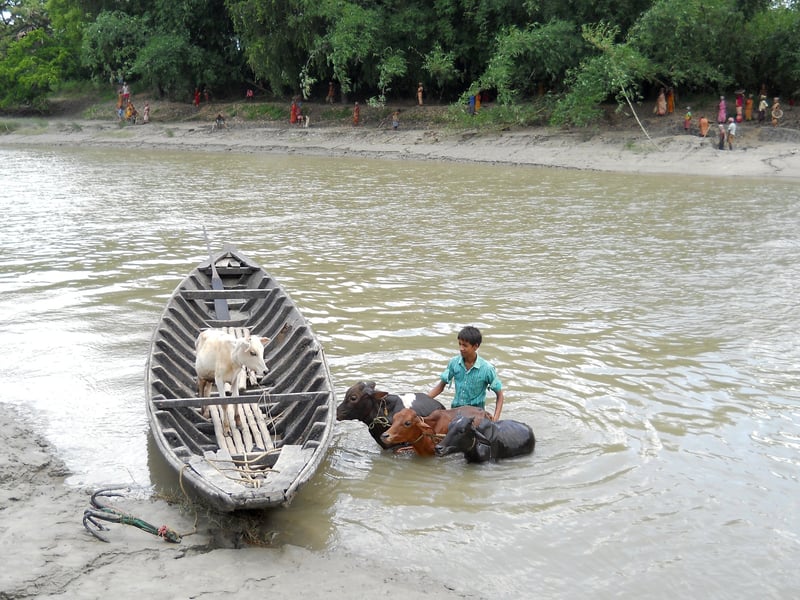
Protecting your animals during Cyclone Vardah: advice for animal owners
News
Swift action during disasters to save animals not only prevents their suffering, but also helps save the lives and livelihoods of the people who depend on them.
As the Indian Centre for Ocean Information Services (INCOIS) and India Meteorological Department (IMD) issues a warning for Very Severe Cyclonic Storm Vardah for Andhra Pradesh and Tamil Nadu coasts, World Animal Protection is sharing advice for pet and livestock owners to help people prepare and protect their animals and themselves.
We know from 50 years of responding to disasters, if people include animals in their plans, less animals and people die while livelihoods are protected. Many animal owners put their own lives at risk to rescue or care for their animals during emergencies. Preparing animals for a disaster can help avoid this.
Please see below some helpful disaster preparedness advice for your listeners. These Public Service Announcements (PSAs) have been issued with success in India, the Philippines, Micronesia and Palau. Governments and animal owners have told us they were useful.
Advice for livestock owners:
If it is safe for you to do so, move your animals to higher ground or a designated safe place:
- Bring a 72 hour supply of suitable food and water.
- Travel with emergency kit for your animals (this may include animal identification and records / documents / important contact numbers /first aid).
If you have no choice but to leave your livestock behind:
- Before evacuating, and if it is safe for you to do so, move livestock to higher ground. Leave them enough food and clean water for 72 hours. They will need protection from the elements and shelter.
- Untie them so they have a chance to escape should floodwaters rise. Tethered or penned animals have no chance in a flood or storm surge. Animals are strong swimmers and untying them gives them a chance to survive.
- When returning after flood waters have receded, have plenty of fresh water available.
- On your return, check and secure fencing as these may have shifted in the floods.
Advice for pet owners
PREPARE FOR YOUR PET – CHECKLIST: Emergency Survival Items:
Food: Store at least three days of non-perishable pet food (canned or dried) in an airtight, waterproof container (remember the can opener!). Ideally this should be the same food as your normally feed your pet so as to avoid stomach upsets.
Water: Store at least three days of water for your pet, in addition to the water you need for your family (remember an animal can drink more water than usual when under stress). Plus you will need extra water to clean up after your pet.
Medicines: Store any extra supply of medicines your pet needs in a waterproof container, as well as any special dietary needs or supplements.
Veterinary/Medical Records: Store copies of any medical and vaccination records in a watertight container or zip lock bag including your vet’s name and telephone number (in case you have to shelter your pet or place them in foster care).
First Aid Kit: Prepare a first aid kit. Talk to your vet about any specific requirements such as tick/flea prevention, antibiotic ointment and saline solution (i.e. eye wash solution separate from your family use)
This is a message from World Animal Protection.
Find out more about our work on protecting animals during and after disasters.